Institute of Tailored Reality
A community platform of cyber patches


A2 | Future Architectures Platform Summer Semester 2024
Filip Vedra Adam Rýznar
A community platform of cyber patches


A2 | Future Architectures Platform Summer Semester 2024
Filip Vedra Adam RýznarThe Institute of Tailored Reality (IoTR) seeks to reconfigure current educational paradigms and contemporary cultural institutions by merging digital innovation with intergenerational engagement.
The mission of the IoTR is to develop a decentralized, phygital platform, albeit somewhat bound to a realm of physicality, that would not only preserve and exhibit cultural heritage, but would also actively shape possible future scenarios of societal interactions in the age of tomorrow.
We aim to bridge intergenerational conversations by inviting elderly population*s while addressing critical social inequalities via education and community–driven initiatives.
The IoTR fosters an intimate exploration of digital realities, challenging the norms of cyber–capitalism and the technosphere in order to provide a deeper understanding of such phenomena as identity, power dynamics or queer representation. By patching digital and physical spaces, we would like to catalyze community participation, support educational advancement or cultivate a suitable environment for stimulating personal and collective growth. Moreover, applying technologies into educational transformation leads towards an elemental shift of current narratives.
The IoTR encapsulates aforementioned points while posing as an experimental structure that navigates an organic evolution of the systemic discourse.
@filipv33
@adamryznar
What If we design a museum w/o a physical storage?
What If the institution remains de–centralised, in a sense of not being under ‚one roof‘?
What If we attempt to develop a platform that can subversively answer to ever–changing trends?
What If a museum helped you navigate your own digital footprint?
What If a museum provided you with tools that would enable you to dismantle given schemes?
What If a museum worked with the idea of technosphere being just another elemental power, one that would eventually assimilate to others?
What If a museum also served as an active community hub?
What If a museum served as an educator in the new age? If not a museum, then what/who? And how do we reconfigure the aging concept of such institution*s?
What If a museum began pioneering changes and bridging problematic gaps within infrastructures of care?
What If a museum became a safe haven for one‘s own exploration of (not only late–age) identity?
What If a museum aimed at deconstructing the truth?
Profound gap between contemporary digital culture and the rapidly aging population.
Dissimilarities in the perception/depiction of Culture as such heavily based upon the use of given medium.
Seeking the real real truth — more POVs — hyperreal mediation is (in)directly reconfiguring people‘s beliefs.
Security in the age of Surveillance/Information/Digital became a big ?! — Web 2.0, platforms and media co–opted by governments and MegaCorp monitor and manipulate populations on unforeseen levels.
Hyperpolarisation of the whole society towards technology.
Exploration of intersectional themes concerning experiences of one‘s personal navigation of co–existence within the age of digitalisation and neo–feudalism in order to broaden horizons, raise awareness and highlight social inequalities.
Allowing for a fluid phygital platform with a solid digital base and a community hub as its unique physical imprint.
Contextualizing Contemporary Art.
Critique of Digital Capitalism & Navigation between Creative Freedom and Commerce.
Engagement/Entanglement with Technosphere
Exploitation of the human in the non-physical space overtook by the artificial.
Politics of Representation & its Polarisations and Power Dynamics.
Gamification of the platforms/digital.
Intergenerational glitching of all the topics.
Local queer elderly population and its societal ostracization
→ attempts for a shift in institutional care which is still largely heteronormative.
Identity politics and its exploration; → identity, sexuality, intimacy ← possible re–discovery via Digital Reminiscence, Avatarism, etc.
keywords:
» Intergenerational Research » Critique of Dualism and Unification
» Digital Labour » Artificial Intelligence » Elderly Queerness
» Identity Politics » Glitch » Surveillance » Resistance » Spectrum
» Gamification » Technosphere.
ALTERING An investigation of contemporary existential narratives
Means: Educational Programme (Courses, Lectures, Webinars), Exhibition Venues (or Digital Archives), Active Engagement (via Personal File, AR, VR, Avatarism or being AFK). 1
Attempting to dissect, analyse and discuss given systemic, cultural or societal schemes via the impact of technology.
TAILORING An investigation of oneself*selves
Attempting to conceive a new perspective towards one‘s own personal positioning via the usage of technology.
Means: AR/VR/Avatarism (via Personal File or with Assistance), Digital Reminiscence (via Digital Memorabilia, Avatarism or VR), Searching for the Truth or Gaming .
CYBER PATCHING
EU Allocations
Private Institutions
Grants + Donations
CZ
Ministry of Culture
>> Main Funding
MLSA** + +
MEYS*
>> Grants + Donations
>> Contributions
*Ministry of Education, Youth and Sports
**Ministry of Labour and Social Affairs
>> Information system for Research, Development & Innovation
>> Digitation and Digital Transformation
>> Educational Infrastructure
>> Social Services
>> Community Energy
>> Vocational Training
General
*Safety Measures, Crucial Information, etc.
Exhibitions
Notes
Immersion
Personal File
General Overview* the Letná Hall + the Garden Back of House**
*Safety Measures, Crucial Information, etc.
Collaborations the Community Hub Curated Exhibition*s
**Offices, Technical Rooms, Depository, etc.
Educational Programme
Festival Venue
Courses
Communal Computing
Panel Programme
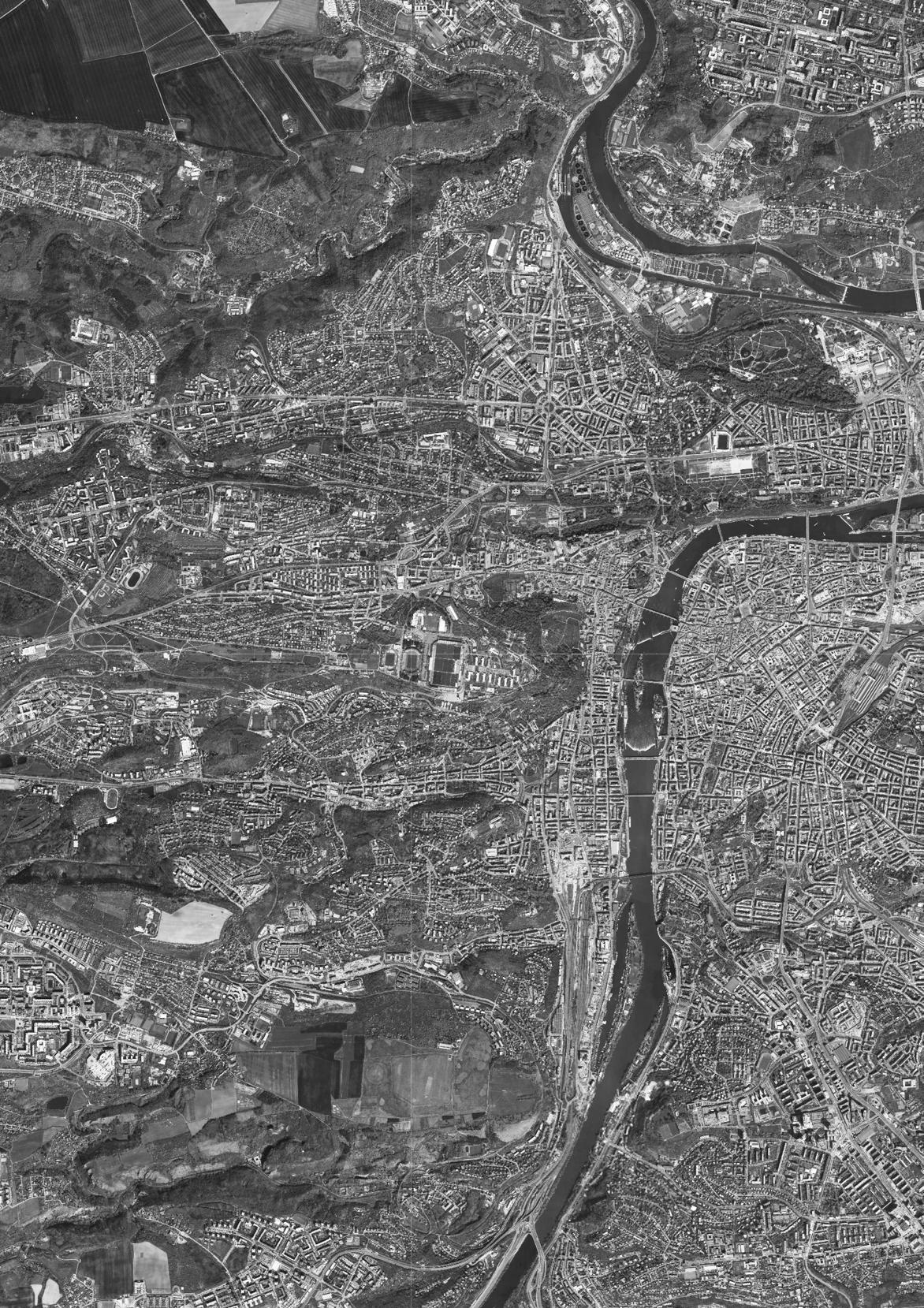

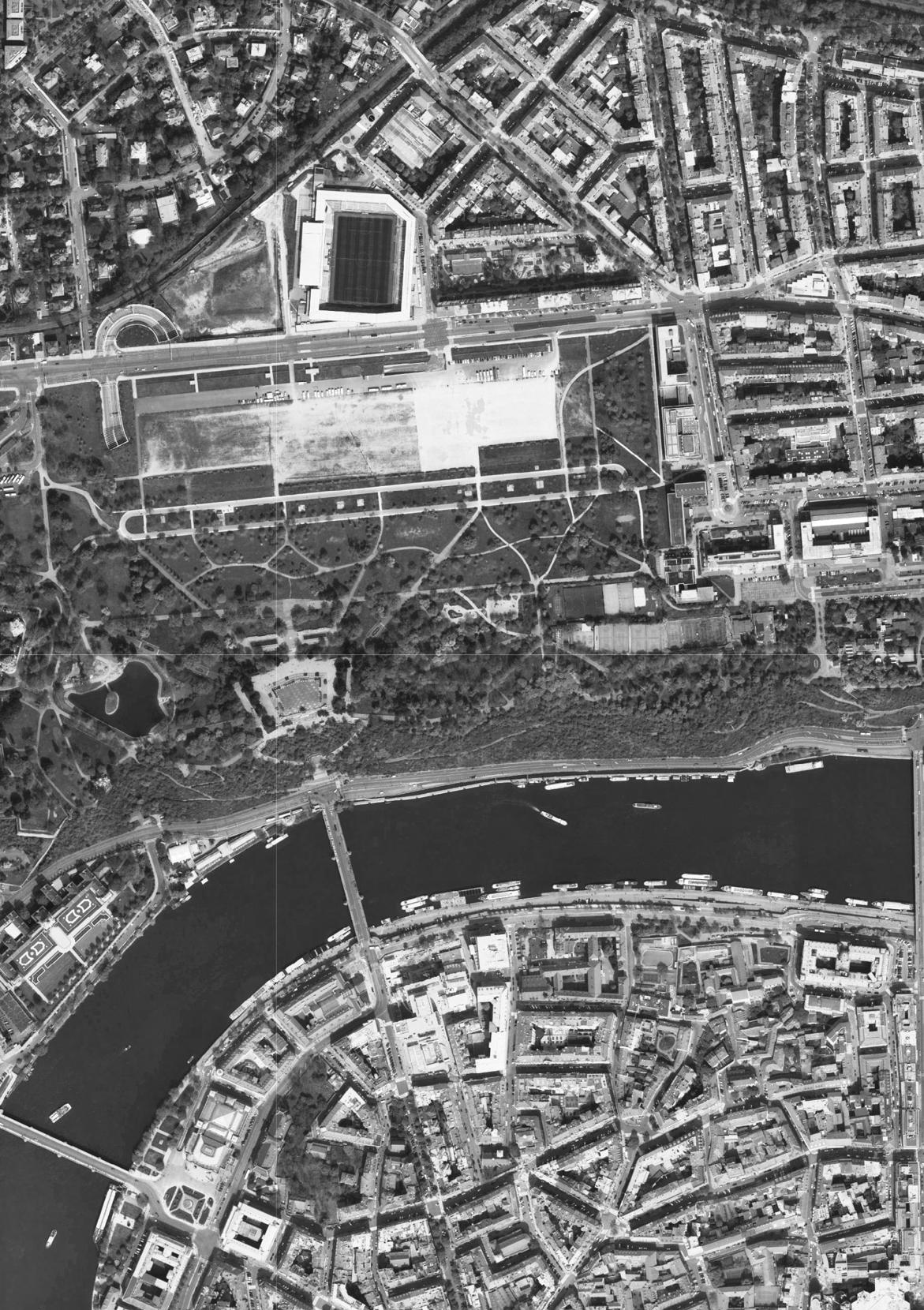
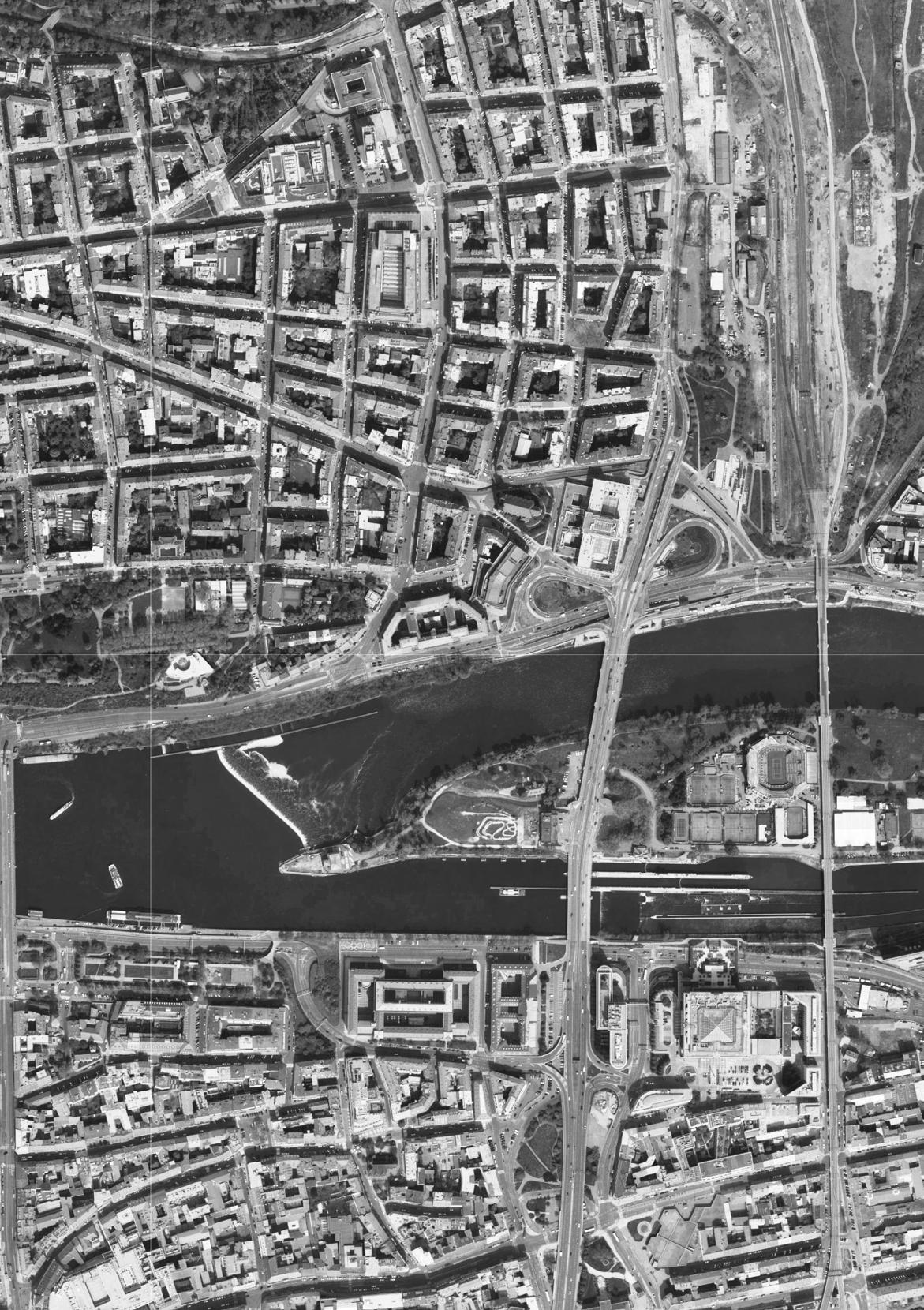 T: Kamenická
T: Strossmayerovo n.
M: Vltavská
T: Kamenická
T: Strossmayerovo n.
M: Vltavská
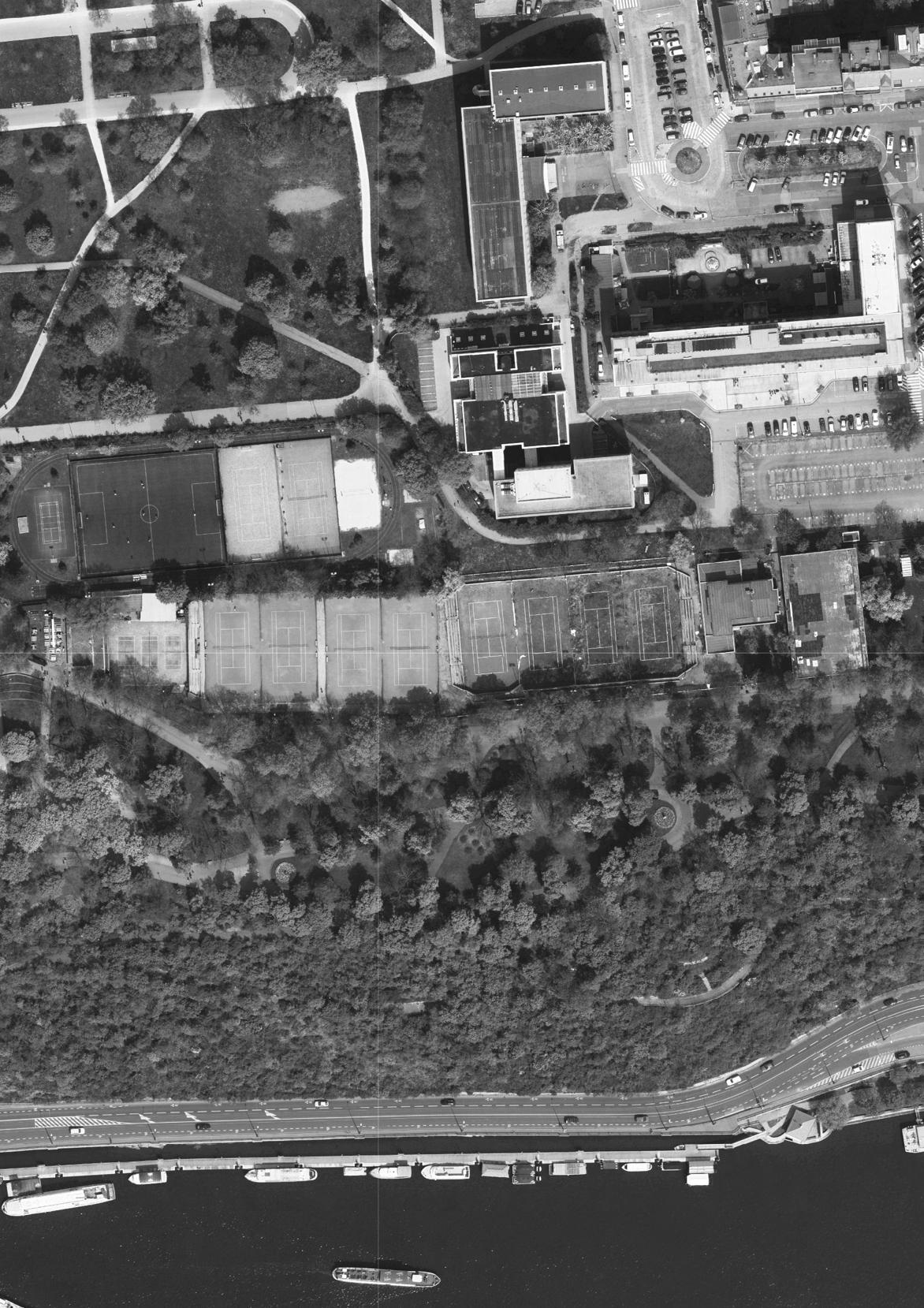
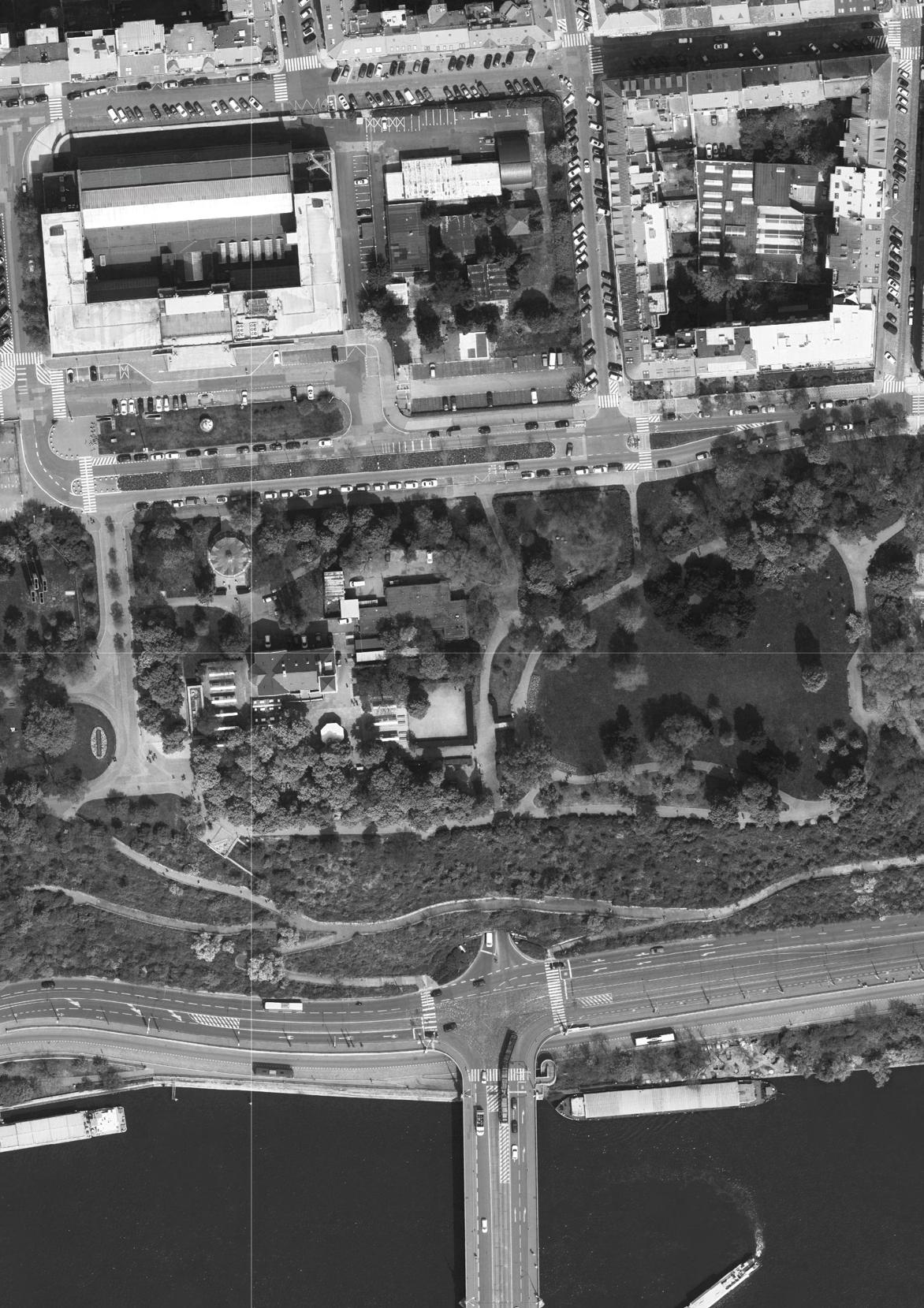
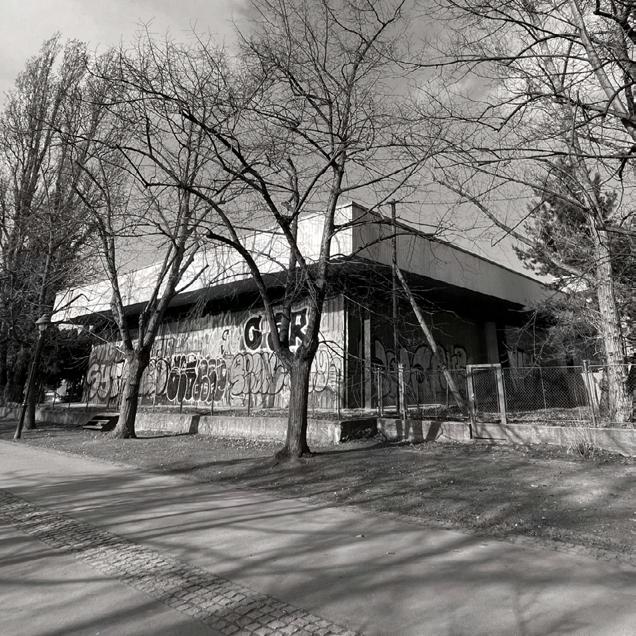
Preservation of the original concrete pit along with eight steel columns.
Addition and enlargement; concrete stairs & ramps + a new CLT frame construction.


The Community Hub >> Café, Educational Platform, Festival Venue, etc.
Exhibition Elements >> Screenings, Interactive Gameplays, Portable Robotic Arms with Additional Features, etc.
Altering >> Adjustable Hammock, Digital Nook >> Active Engagement.
Tailoring >> VR Station/Tent, Soft Arena >> AR/VR, Avatarism.
Back of House >> Offices, Kitchenette, Technical Rooms, etc.
The Community Hub >> Café, Educational Platform, Festival Venue, etc.
Exhibition Elements >> Screenings, Interactive Gameplays, Portable Robotic Arms with Additional Features, etc.
Altering >> Adjustable Hammock, Digital Nook >> Active Engagement.
Tailoring >> VR Station/Tent, Soft Arena >> AR/VR, Avatarism.
Back of House >> Offices, Kitchenette, Technical Rooms, etc.
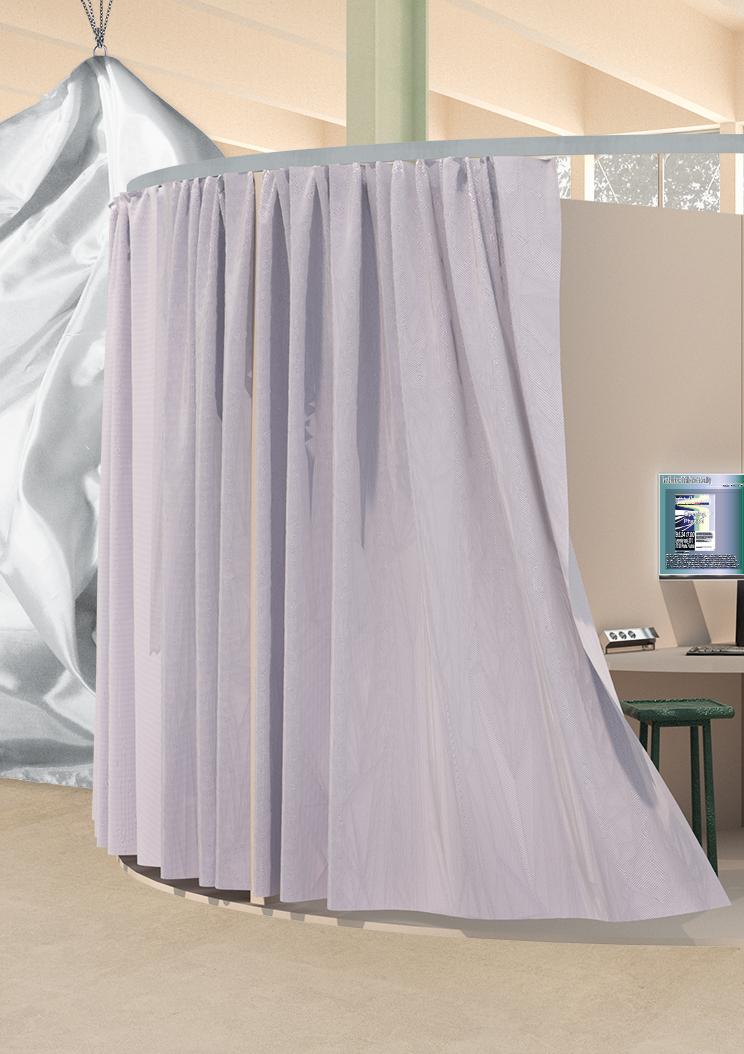

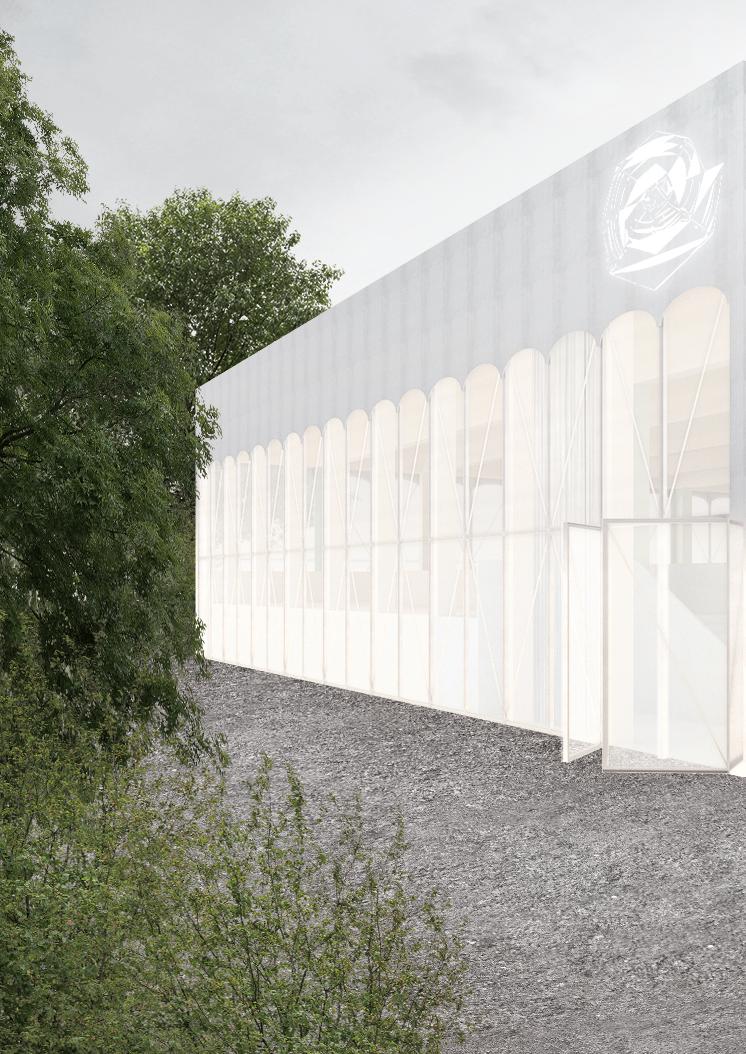
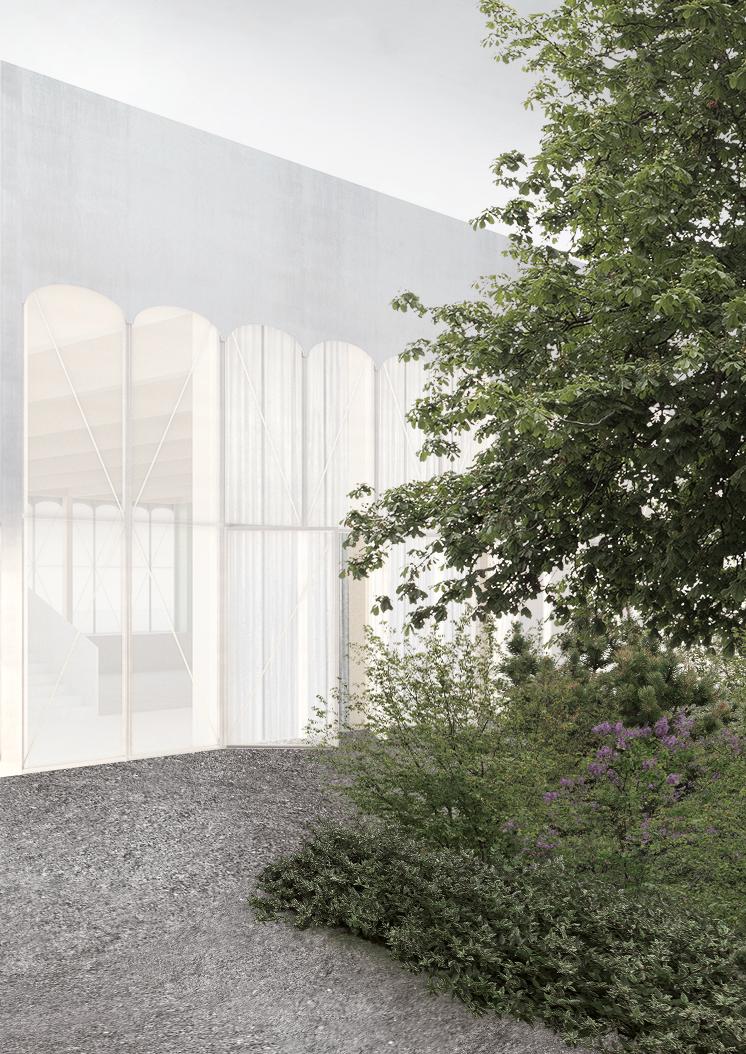
The logo of the IoTR aims to vaguely resemble unspecified worldbuilding organisations.

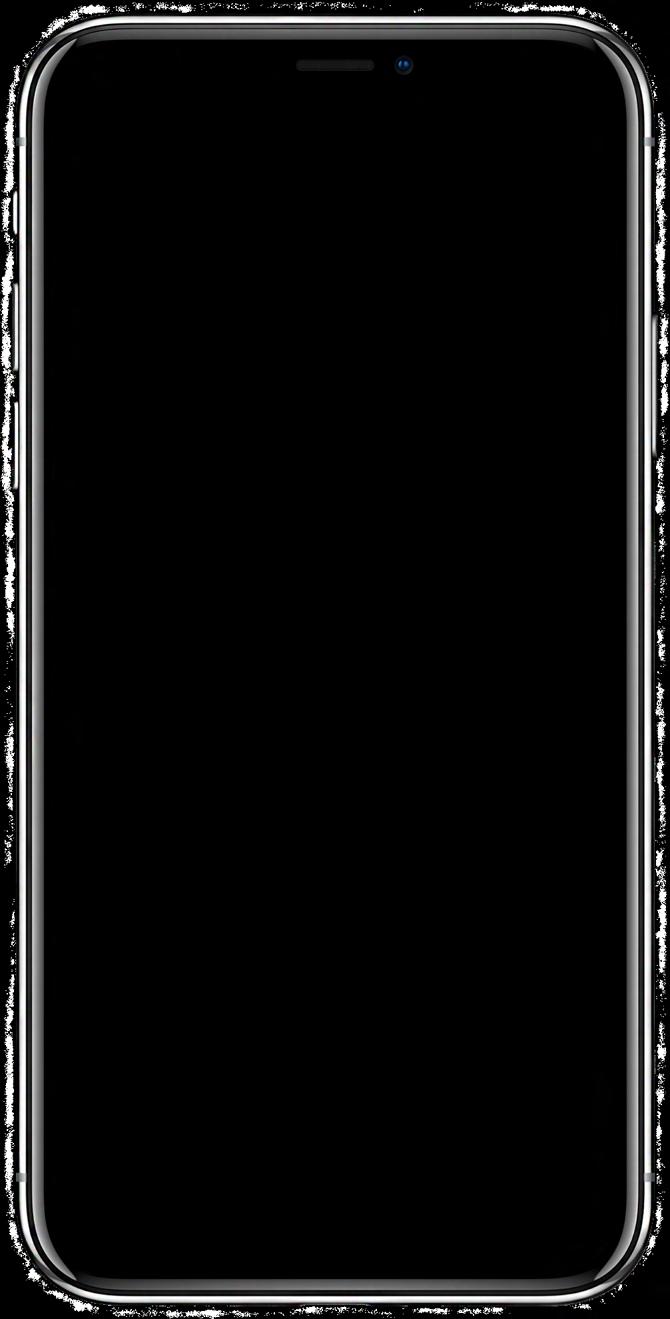

Programme 2024
The first edition of the IoTR delves into the evolving concept of postnature, proposing it as a foundational framework for contemporary creation. This exploration unfolds within a phygital space—where physical and digital realms converge—o ering an experimental educational platform. Here, we will speculate on and interrogate the implications of contemporary ecologies and innovative academic methods. Emphasizing radical notions of collective learning, this initiative invites participants to engage deeply with the materials and ideas that shape our understanding of nature and technology. This unique phygital se ing fosters a dynamic environment for rethinking




To dissimulate is to feign not to have what one has. To simulate is to feign to have what one hasn't. One implies a presence, the other an absence. But the ma er is more complicated, since to simulate is not simply to feign: "Someone who feigns an illness can simply go to bed and pretend he is ill. Someone who simulates an illness produces in himself some of the symptoms" (Li re). Thus, feigning or dissimulating leaves the reality principle intact: the di erence is always clear, it is only masked; whereas simulation threatens the di erence between "true" and "false", between "real" and "imaginary". Since the simulator produces "true" symptoms, is he or she ill or not? The simulator cannot be treated objectively either as ill, or as not ill. Psychology and medicine stop at this point, before a thereafter undiscoverable truth of the illness. For if any symptom can be "produced," and can no longer be accepted as a fact of nature, then every illness may be considered as simulatable and simulated, and medicine loses its meaning since it only knows how to treat "true" illnesses by their objective causes. Psychosomatics evolves in a dubious way on the edge of the illness principle. As for psychoanalysis, it transfers the symptom from the organic to the unconscious order: once again, the la er is held to be real, more real than the former; but why should simulation stop at the portals of the unconscious? Why couldn't the "work" of the unconscious be "produced" in the same way as any other symptom in classical medicine? Dreams already are.
The alienist, of course, claims that "for each form of the mental alienation there is a particular order in the succession of symptoms, of which the simulator is unaware and in the absence of which the alienist is unlikely to be deceived." This (which dates from 1865) in order to save at all cost the truth principle, and to escape the specter raised by simulation: namely that truth, reference and objective caues have ceased to exist. What can medicine do with something which floats on either side of illness, on either side of health, or with the reduplication of illness in a discourse that is no longer true or false? What can psychoanalysis do with the reduplication of the discourse of the unconscious in a discourse of simulation that can never be unmasked, since it isn't false either?2